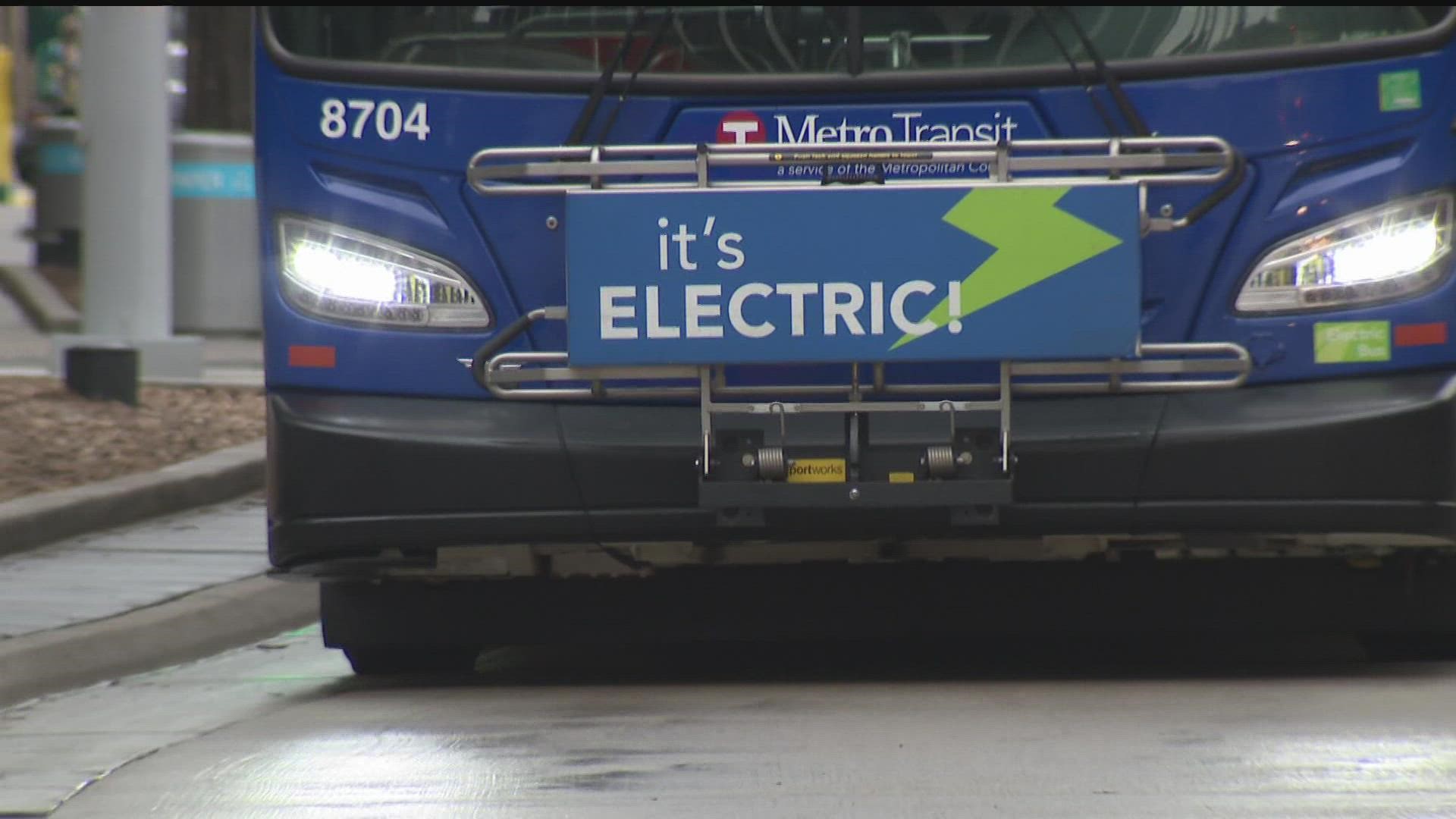MINNEAPOLIS — Metro Transit celebrated Earth Day by offering free rides on one of it's greenest buses on Friday, and riders should get used to seeing them more often in the coming years.
"Today we're on a battery electric bus," said Brian Funk, Chief Operating Officer for Metro Transit. "Normally this 60-foot, accordion bus, goes up and down on the C-Line between Brooklyn Center and Downtown."
KARE11 reporter Kent Erdahl rode the bus with Funk on Friday to discuss Metro Transit's zero emission bus transition plan, which calls for 40% of new bus purchases over the next five years to be battery electric.
Funk: "We have over 900 buses in our fleet, so 40% of the buses purchased over the next five years is going to be more than 100 buses."
So far, Metro Transit only operates eight electric buses and eight charging stations, which were purchased as part of a pilot program in 2019. A series of problems with the chargers and the bus mechanics meant the buses sat largely idle for more than a year.
Erdahl: "A wise Muppet once said, 'It's not easy being green.'"
Funk: "That's true."
Erdahl: "This hasn't been the easiest roll out."
Funk: "Right. We've had some problems back in our garage, with some of the charging equipment, but our manufacturer has stood behind it. They replaced that equipment. Now we're seeing higher reliability, we're getting the charges that we expected."
Metro Transit has already spent several years adding 130 diesel hybrid buses to its fleet, including all of those currently running on Nicollet Avenue. But upgrading the rest of the diesel buses to fully electric would be costly.
Funk: "Right now, this 60-foot bus is about $400,000 more than the diesel buses that we purchased at the same time. However, we're hoping that we start to see — between fuel savings, maintenance costs — that we start to bring those closer together as the technology matures."
To fulfill it's goals, Metro Transit will need to rely on a combination of federal infrastructure money and budget support for the state legislature to add buses and expand the footprint, and reliability, of the charging stations inside bus garages.
Funk: "Can a bus today do everything we ask it to. The simple answer is, not yet. This bus, right here, can travel between 90 and 100 miles in a day. We have buses that we ask to travel 300 miles in a day, and so we're not able to do that quite yet, but we think and the technology is proving out, that it's advancing to get us closer and closer on an incremental basis."
Erdahl: "What if a legislator looks at the rocky start and all the costs that have had to be sunk into it, and says it's not really worth it, when we already have diesel hybrids."
Funk: "That's why we're going into this in a phased approach and that's what is outlined in our transition plan, is to say that we haven't made up our mind of what 100% of our buses are going to be."
Even if the current fleet doesn't get any greener, the Metro Transit light rail system is already electric, and all metro transit buses account for less than one half of a percent of the state's green house gas emissions. Compare that to cars and light trucks, which account for nearly 60 percent of emissions, and you can feel good about that bus pass.
Watch more local news:
Watch the latest local news from the Twin Cities in our YouTube playlist:

